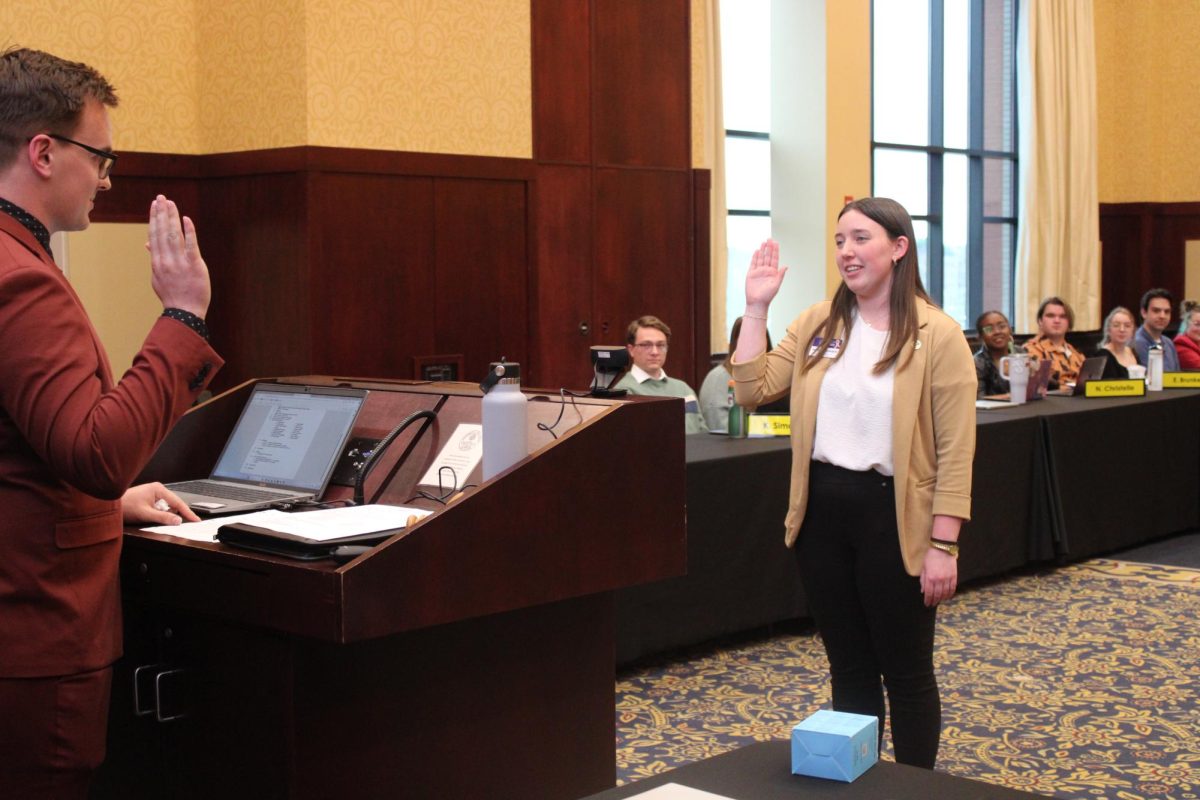Sophomore Joe Horton remembers taking a survey that asked him some personal questions about his drug and alcohol use. A year later, while viewing the results of the survey, he is surprised by one statistic: 42 percent of UW-Eau Claire students say they have driven a car while under the influence.
“That really surprises me,” Horton said. “That number just seems so high.”
Freshman Candy Spiegel also saw the survey results, but was not surprised that 83 percent of underage Eau Claire students reported consuming alcohol within the previous month of the survey.
“A couple of my friends just got busted for drinking in the dorms,” she said. “It’s what people do in college.”
Last year, student employees of Student Health Service and Housing & Residence Life distributed the Core Alcohol and Drug Survey to 10 percent of full-time undergraduate Eau Claire students, Alcohol Education Coordinator Sarah Harvieux said.
About 1,000 students were surveyed in selected classrooms, such as Horton’s Psychology 100 class. Survey participants completed and submitted their survey responses during one class period.
Some of the key findings from Eau Claire students include that 94 percent consumed alcohol in the past year, and 87 percent reported drinking within a month of the survey.
Horton agreed with the 97 percent of students who believe the average student on campus uses alcohol once a week or more.
“Every weekend, like clockwork, I’ll see someone drunk,” he said. “And on the weekdays, I know I can find someone who is drunk.”
Survey respondents were asked to indicate the groups where they thought drinking had a central part of the social life.
About 93 percent of students said male students are the most dependent on alcohol for social purposes. The response for women who see drinking as a central part of social life was 87 percent, and 70 percent indicated that athletes did as well.
Spiegel agreed with the 74 percent who think that the social atmosphere on campus promotes alcohol use.
She said living in the dorms makes it easier to find people to go out with on the weekends, and she makes her weekend plans around parties.
Associate Dean of Students Robert Shaw said he anticipated the survey’s figures. Wisconsin’s “wet culture” and alcohol industry have an influence over students, he said, but students, ultimately, are responsible for their choices.
“Everyone has the opportunity to make choices in their best interest,” he said.
This is the third time since 1998 that the Core Survey has been distributed on campus, which happens in two-year intervals.
The same survey was used all three times, but the method of distribution was different in 2002. In 1998 and 2000, the survey was distributed to a 10 percent random sample via mail.
The return rate was not high and results not statistically sound, Harvieux said.
Last year, the research team administered the survey in a stratified random sample of classes to improve the return rate and quality of results.
“The 2002 distribution of the Core Survey was extremely successful,” Harvieux said, “because we, as a research team, met our goals of improving the response rate and, more importantly, the quality of the result.”
While the survey statistics are high, Shaw said, students are urged not to fall in line with the numbers.
“We’re not on this holy crusade to stop drinking, that would be impossible,” Shaw said. “We just want students to make better choices.”






